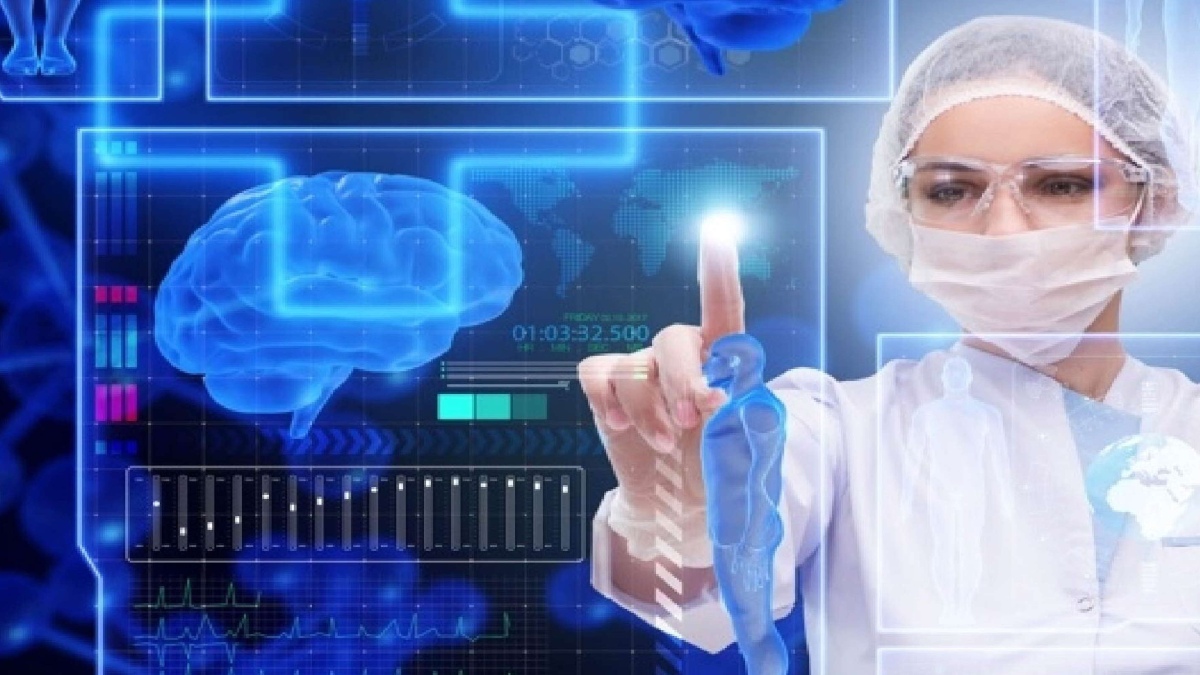International Law and Health Related International Standard Setting Instruments play an important role in evolution and development of International Health Law. Conventional International Law is the primary International Legal Instrument through which International Organisations can extend International Cooperation for improving the Global Health Status as also reducing the Global Burden of Diseases. In the recent times, there has been an increase in the Inter-Governmental Organisations in the domain of Health Care. Let us take the instance of the growing diversity of International Law relating to Public Health wherein a broad array of Inter-Governmental Organisations including United Nations and its agencies and other related bodies are contributing to the development of International Health Law. The International Health Law is therefore emerging in a fragmented and amorphous manner.
AI is having huge impact on Health Care and is transforming the Health Care Economy. AI has been defined as “the Development of Computers to engage Human Like thought processes such as Learning, Reasoning and Self-Correction”. While Machine Learning is a field of AI and in the context of Health Care has been put to varied uses ranging from classifying Health Care Data, to Diagnostic, Disease Predictions. Application of AI in Health Care can be broadly classified into:
• AI and Patient Care
• AI and Clinical Practice
• AI and Administration and Operations
• AI and Medical Research and Development
The International Health Law is a proliferation of multilateral organisations that often raise over lapping legal authority issues. However, International Health Law consolidates international standard setting instruments along with health-related legal rules, norms, and standards. The International Human Rights Law also plays an important role in International Health Law given the fact that right to health is also a significant human rights norm. While it can be argued that right to health features as a core parameter in the context of International Health Law since it emphasizes on the protection individual health care world-wide and strives for equity in health. The development of International Health Law in the context of AI also largely is an interplay of Privacy Laws, Cyber Laws, Cyber Security Laws, Civil Laws, Criminal Laws, Tort Laws, Medical & Health Laws.
AI primarily relies on data and data sets and makes use of the techniques like machine learning and natural language processing. AI is enabling better Health Care and Governance by analysing the Health Data in a precise and quick manner for a better detection, diagnosis, and treatment. AI driven technologies by way algorithms, facial recognition, chatbots bring forward various legal, regulatory, ethical and medico legal considerations when applied in the context of Health Care. The primary regulatory issue with regard to AI in Health Care is the archaic regulatory infrastructure.
Given the fact that AI is making use of machine learning techniques & the constant learning capabilities, AI algorithms keep evolving and by the time the regulatory approval is granted, the learning capacities of algorithms are increased making them entirely different.
Further, another aspect of AI is the black box, while we will be able to program an AI algorithm, but we do not have any clue how it works inside, this brings an issue of explicability and therefore making the regulatory challenges unique.
AI, HEALTH CARE AND LEGAL ASPECTS
• PRIVACY
Many AI systems collect, store, process transmit, huge amounts of data of which sensitive and personal data are an essential component. AI in the context of Health Care primarily handles a lot of personal data relating to the patients including electronic health & medical records, diagnostic reports, medical conditions, medical history, vitals related information, information relating to height, weight, Body Mass Index (BMI), psychological & human behaviour patterns. Various International, National, Federal, and state rules and common laws govern the collection, processing, handling, transmission of such personal data. While in the context protection of patient’s privacy assumes a lot of significance.
It is very interesting to understand if the outcome predicted by an AI algorithm consisting of any personal data of the patient amounts to privacy breach given the complexities of AI algorithms. Is the privacy of the patient protected adequately by AI algorithm is another question?
Further, in case of AI based Chatbots in the context of health care, the following privacy considerations are likely to arise. Is the chatbot authorised to collect personal data of patients? What is the legal status of the AI based Chatbots? Some limited amount of legal recognition shall be required to answer questions like this.
• INFORMED CONSENT
The AI Algorithms often make use of personal data of patients in the context of health care be it for analysis, predictions, counselling prescribing medicines and treatments, therapeutic sessions, and other areas. In the context of machine learning the clinical data of the patient is used for developing Algorithms for improvement of health care and for research and development activities. Initially the patients may provide informed and free consent with regard to collection, processing, sharing their sensitive and personal data specific for better diagnosis of their health and medical conditions. However, this becomes a challenge in case of large data sets. However, seeking Informed Consent shall be difficult in case of providing fine print terms and conditions in a manner not specifying about the future uses of the data. However, it may not be viable to seek Informed Consent at every stage where the Patients data is used given the kinds of complexity in which the AI Algorithms operate.
However, using the opt in and optout models may not be workable in the context of Al Algorithms as the AI Algorithms make use of machine learning and become more and more intelligent. It may not be possible to predict how and the manner in which the personal data possessed by the AI Algorithm is used. Informed Consent in the context of AI in health care becomes very important since the patient is required to be informed about the different options regarding his health and medical conditions and he is the decision maker with regard to the same. AI Algorithm must be designed in a manner to seek Informed Consent in a reasonable manner making the Patient aware of the different options and enabling them to choose thereof. There are however different kinds of approaches, different Jurisdictions, which have an emphasis on either patient or doctor’s role with regard to consent in a reasonable manner to determine the ground for baseline.
• DATA PROTECTION
One of the biggest limitations of AI in health care is involvement of machine learning and deep learning approaches which require huge amount of data sets for the purpose of analysing, testing, and predicting. These large sets of data definitely comprise of sensitive and personal data of patients including their health-related information, medical related information, personal information, and others. Removing all potentially identifiable- information from these data sets can be a herculean task. In this scenario, data protection assumes a greater significance. It may also be possible to identify individuals by linkage with other data sets even if the data sets are not including any medical images or medical related information or do not make use of any advanced or future technologies. Data sharing becomes another important aspect that requires legal considerations in the context of AI and health care. Data sharing involves sharing of sensitive and medical data which may increase the risk of data breaches.
However, having restrictive data sharing arrangements can reduce the widest possible patient benefit. It is advised that new regulations governing privacy must be created in the context of AI and health care to protect the sensitive and personal data of patients against inappropriate usage, accidental disclosures, and weakness in deidentification techniques. However, over protection of personal data may be detrimental to data driven technologies like AI. However, a balance needs to be struck between the adoptive technology and data protection.
• INTELLECTUAL PROPERTY RIGHTS (IPR)
AI Algorithms largely are largely associated with data and data sets. In the context of AI in health care AI Algorithms possess large chunks of data which are created which are a result of using analysis and correlation of human created works. In this kind of scenario lots of Intellectual Property is created out of such Algorithms. In addition to the above, the AI Algorithms making use of machine learning and deep learning techniques, analyse and predict new outcomes which also are capable of being considered as Intellectual Property.
The Ownership of Intellectual Property rights in respect to the data possessed by the AI Algorithms assumes significance. Considering the fact that the creators and developers become the first owners of intellectual property. In this context, copyright becomes an important element with regard to protection of such data and data sets
Another aspect of intellectual property in the context of AI in health care is the analysis and predictions and outcomes generated by AI Algorithms. Are the machines capable of protecting the Intellectual Property created out of its Algorithms? Can an AI system license its Intellectual Property? This question becomes significant in the context of AI in health care in case AI is leveraged by various stake holders in the health care industry.
Let us take an example, in case, a doctor engaged by a hospital makes use of AI for the purpose of analysing the medical and health condition of a patient who owns the Intellectual Property of the output generated by the Algorithm.
In case an AI Algorithm comes up with unique invention or discovery in the field of health care subject to its analysis using the data through machine learning and deep learning, can such inventions be capable forgetting Patent protection? This becomes important since AI in health care is leveraged for research and development and further analysis.
In case of any data or datasets possessed by AI and Algorithm are copyrighted material, the legal accountability for IP related infringements will also have to analysed.
The International Health Law is a proliferation of multilateral organisations that often raise overlapping legal authority issues. However, International Health Law consolidates international standard setting instruments along with health-related legal rules, norms, and standards. The International Human Rights Law also plays an important role in International Health Law given the fact that right to health is also a significant human rights norm. While it can be argued that right to health features as a core parameter in the context of International Health Law since it emphasizes on the protection individual health care world-wide and strives for equity in health.























